
The Vibrant Heart of Surabaya: Tunjungan
Welcome to Tunjungan, the bustling and lively neighborhood located in the heart of Surabaya, Indonesia. Known for its rich history and vibrant atmosphere, Tunjungan offers tourists a unique glimpse into the city's cultural and commercial life. As you walk through the streets, you will be greeted by an eclectic mix of colonial-era buildings and modern skyscrapers, reflecting Surabaya's dynamic growth and historical heritage. Tunjungan is home to the famous Tunjungan Plaza, one of the largest shopping centers in Indonesia. Here, you can indulge in a shopping spree, enjoy a meal at a variety of restaurants, or catch the latest movie at the cinema. The plaza is a hub of activity, offering something for everyone, from luxury brands to local souvenirs. For those interested in history, a visit to the nearby historic Hotel Majapahit is a must. This iconic hotel, originally built in 1910, played a significant role in Indonesia's struggle for independence. Stroll through its elegant gardens and learn about the events that shaped the nation's history. Additionally, Tunjungan's streets are lined with charming cafes, street vendors, and cultural landmarks, making it a perfect place for leisurely exploration.
Local tips in Tunjungan
- Visit Tunjungan Plaza early in the day to avoid crowds and fully enjoy the shopping experience.
- Wear comfortable shoes as the neighborhood is best explored on foot, allowing you to discover hidden gems.
- Don't miss the traditional food stalls around Tunjungan for a taste of authentic Indonesian cuisine.
- Carry a bottle of water and stay hydrated, as the tropical climate can be quite warm.
The Vibrant Heart of Surabaya: Tunjungan
Welcome to Tunjungan, the bustling and lively neighborhood located in the heart of Surabaya, Indonesia. Known for its rich history and vibrant atmosphere, Tunjungan offers tourists a unique glimpse into the city's cultural and commercial life. As you walk through the streets, you will be greeted by an eclectic mix of colonial-era buildings and modern skyscrapers, reflecting Surabaya's dynamic growth and historical heritage. Tunjungan is home to the famous Tunjungan Plaza, one of the largest shopping centers in Indonesia. Here, you can indulge in a shopping spree, enjoy a meal at a variety of restaurants, or catch the latest movie at the cinema. The plaza is a hub of activity, offering something for everyone, from luxury brands to local souvenirs. For those interested in history, a visit to the nearby historic Hotel Majapahit is a must. This iconic hotel, originally built in 1910, played a significant role in Indonesia's struggle for independence. Stroll through its elegant gardens and learn about the events that shaped the nation's history. Additionally, Tunjungan's streets are lined with charming cafes, street vendors, and cultural landmarks, making it a perfect place for leisurely exploration.
Iconic landmarks you can’t miss
Tunjungan Plaza
Experience the bustling atmosphere of Tunjungan Plaza, Surabaya's premier shopping destination with diverse retail, dining, and entertainment options.
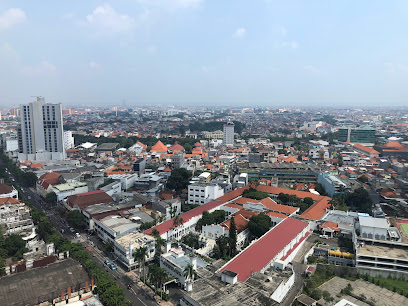
Monumen Tugu Pahlawan dan Museum Sepuluh Nopember Surabaya
Explore Surabaya's rich history at Monumen Tugu Pahlawan and Museum Sepuluh Nopember, a tribute to Indonesia's path to independence.
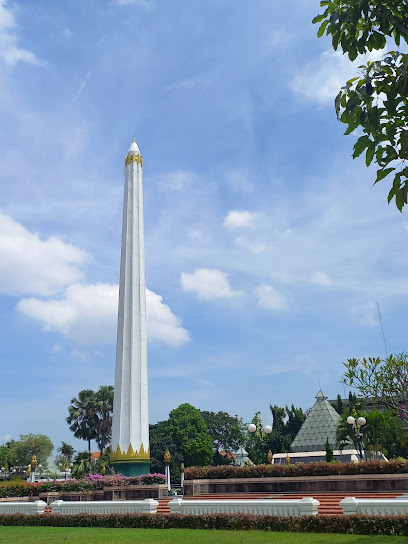
Tunjungan Plaza 6
Discover the largest shopping mall in Surabaya, Tunjungan Plaza 6, where shopping, dining, and entertainment blend seamlessly for an unforgettable experience.
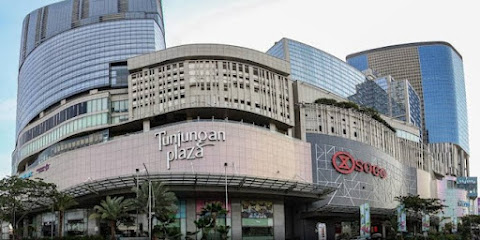
Siola Surabaya Museum
Explore the Siola Surabaya Museum, a cultural hub showcasing Surabaya's rich history and vibrant heritage through engaging exhibits and artifacts.
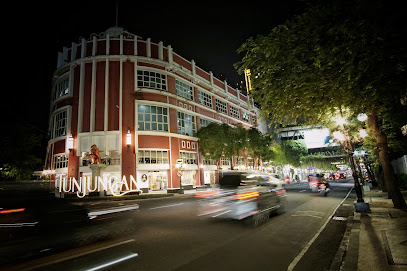
Tunjungan Plaza 4
Discover Tunjungan Plaza 4, Surabaya's premier shopping mall, where shopping, dining, and entertainment come together in an unforgettable experience.
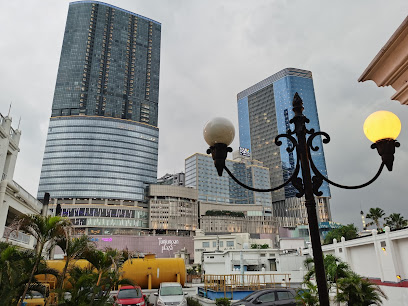
Museum Dr. Soetomo
Discover the historical significance of Dr. Soetomo at this captivating museum in Surabaya, a must-visit for culture and history enthusiasts.
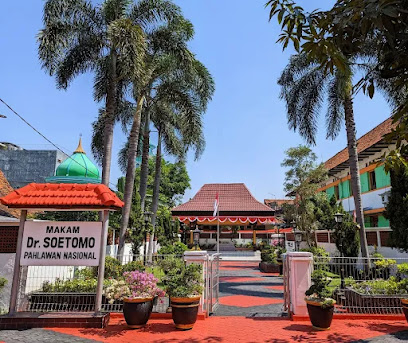
Statue of Gubernur Suryo
Discover the Statue of Gubernur Suryo in Surabaya, a monumental tribute to history and culture in the heart of East Java.
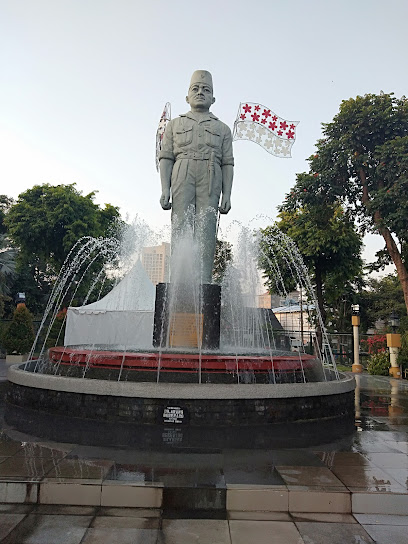
Tunjungan Romansa
Experience the charm of Tunjungan Romansa in Surabaya, where history meets modern culture in a vibrant tourist attraction.
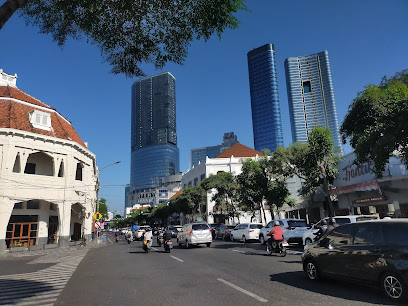
Jalan Tunjungan Surabaya
Explore Jalan Tunjungan, the bustling heart of Surabaya, where shopping, dining, and culture converge in a vibrant city experience.
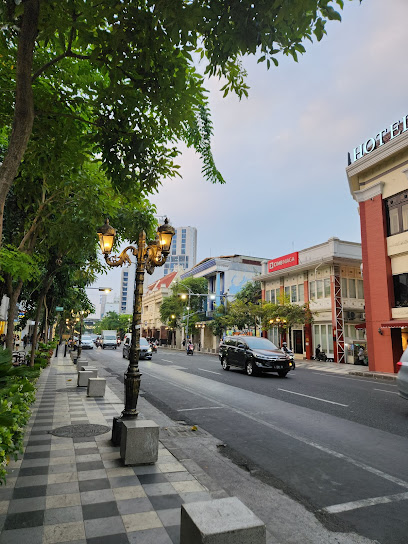
Tunjungan
Discover Surabaya's vibrant life at Tunjungan, a bustling bus stop offering a glimpse into the city's culture and convenient access to local attractions!
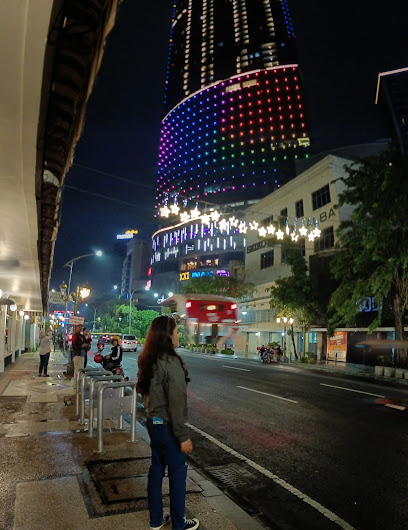
Unmissable attractions to see
Siola Surabaya Museum
Explore Surabaya's cultural legacy at the Siola Surabaya Museum, where history comes alive through captivating exhibits and local heritage.
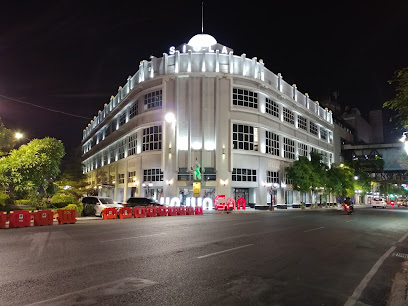
Statue of Gubernur Suryo
Discover the Statue of Gubernur Suryo, a monumental tribute to East Java's heritage, surrounded by lush gardens and rich history in Surabaya.
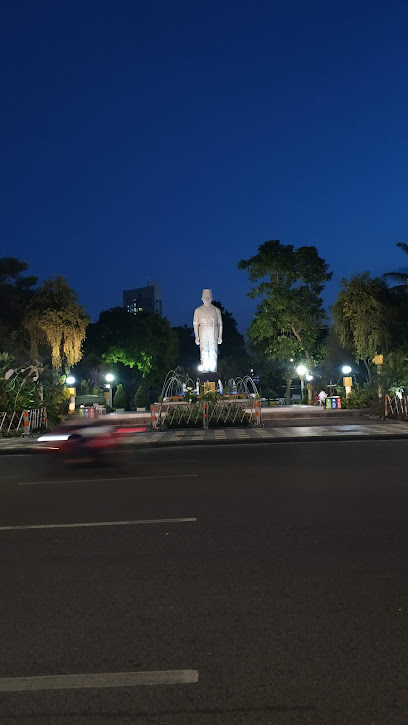
Tunjungan Romansa
Explore Tunjungan Romansa, a stunning tourist attraction in Surabaya, blending natural beauty with rich cultural heritage.
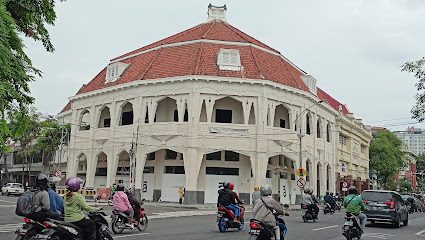
Taman Gantung Tunjungan
Discover the tranquil beauty of Taman Gantung Tunjungan, a garden oasis in Surabaya offering vibrant landscapes and peaceful escapes.
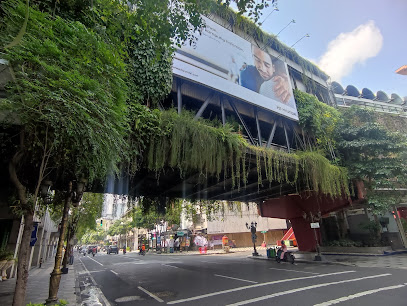
WISATA TUNJUNGAN MALAM
Discover the vibrant nightlife of Surabaya at Wisata Tunjungan Malam, where culture, cuisine, and entertainment blend seamlessly.
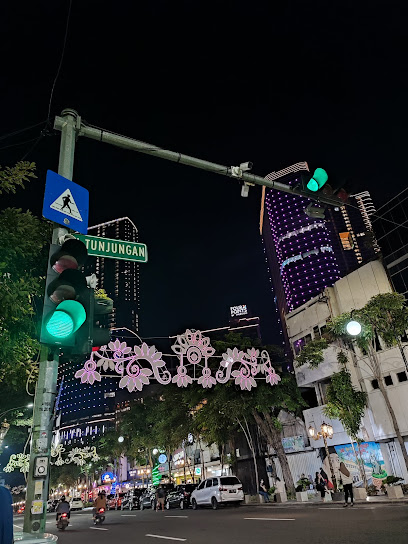
Mlaku - Mlaku Nang Tunjungan Surabaya
Explore the heart of Surabaya at Mlaku, where culture, art, and community converge in a vibrant atmosphere.
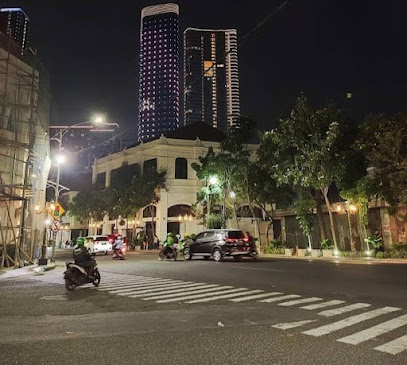
Essential places to dine
Marugame Udon, Tunjungan Plaza
Experience authentic Japanese flavors at Marugame Udon in Tunjungan Plaza—your go-to spot for delicious udon noodles and tempura in Surabaya.
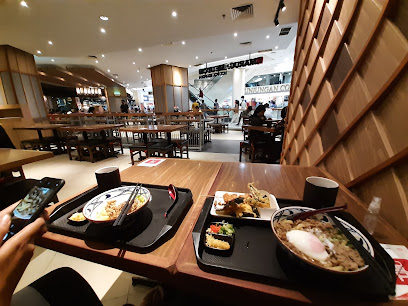
bebek hitam alas daun
Experience authentic Indonesian flavors at Bebek Hitam Alas Daun in Surabaya – where every dish tells a story.
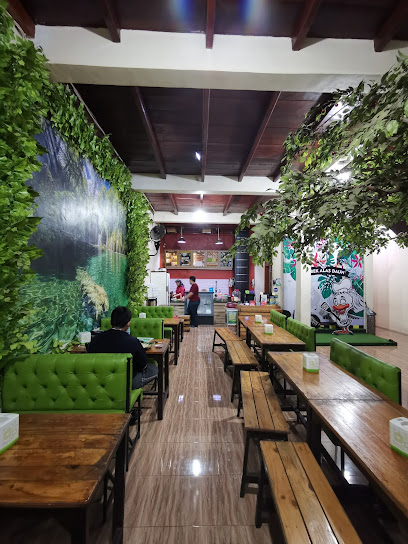
Taste Van Java - Tunjungan Plaza 5
Indulge in authentic Javanese cuisine at Taste Van Java in Surabaya – where every dish tells a story.
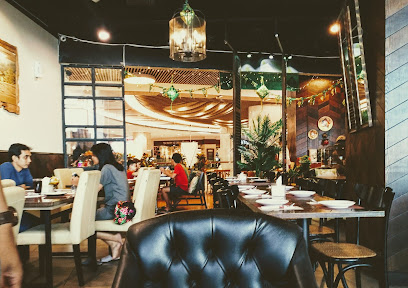
GIOI - Tunjungan Plaza 5
Experience the best of Asian fusion cuisine at GIOI in Tunjungan Plaza 5, where tradition meets innovation in every delicious bite.
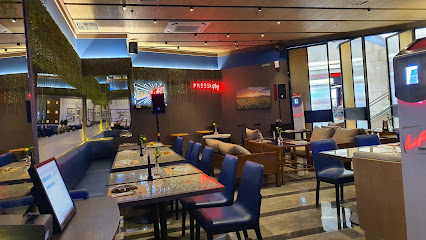
The Duck King
Discover authentic Chinese cuisine at The Duck King - a culinary treasure in Surabaya known for its exquisite flavors and inviting atmosphere.
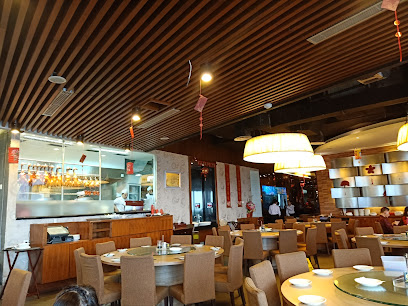
Ka Soh Restaurant
Discover the essence of Singaporean flavors at Ka Soh Restaurant in Surabaya - where every dish tells a story.
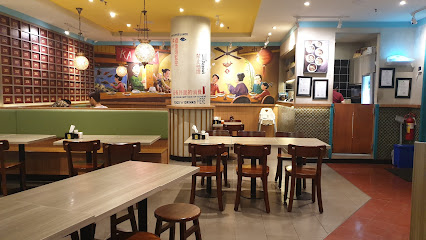
7 STARS Restaurant
Experience the vibrant flavors of Asian cuisine at Surabaya's premier dining destination - 7 STARS Restaurant.
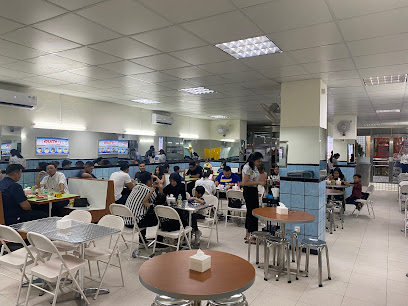
Nasi Kulit ILEGAL
Experience authentic Indonesian cuisine at Nasi Kulit ILEGAL in Surabaya – where every dish tells a story!
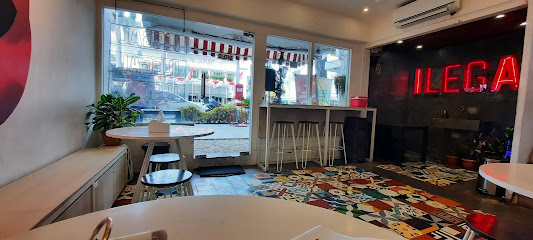
The G Flavors
Experience culinary excellence at The G Flavors in Surabaya – where local meets global in every delicious bite.
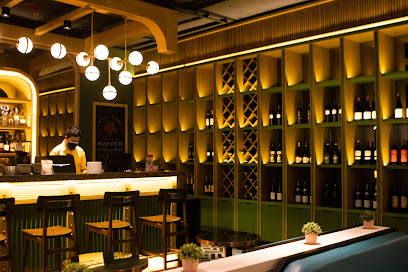
Old Street Bak Kut Teh
Experience authentic Chinese-Indonesian cuisine at Old Street Bak Kut Teh in Surabaya, where every dish tells a story.
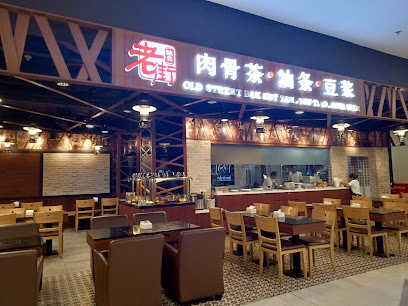
Markets, malls and hidden boutiques
Tunjungan Plaza 6
Discover Tunjungan Plaza 6, the ultimate shopping destination in Surabaya, where local culture meets modern retail and dining experiences.
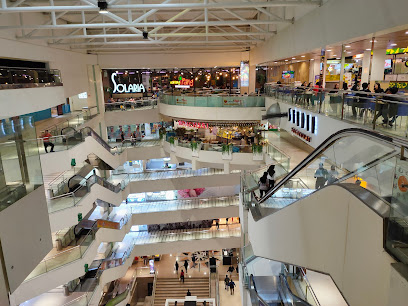
Tunjungan Plaza
Discover Tunjungan Plaza in Surabaya – a bustling shopping paradise with diverse dining and entertainment options for every traveler.
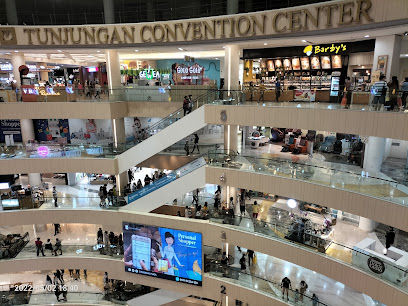
Matahari Department Store (Tunjungan Plaza)
Experience the ultimate shopping adventure at Matahari Department Store in Surabaya's Tunjungan Plaza, where fashion meets affordability.
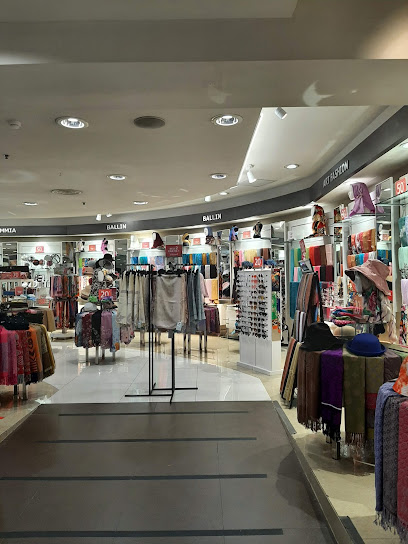
UNIQLO TUNJUNGAN PLAZA 3 Surabaya
Explore the latest fashion trends at UNIQLO Tunjungan Plaza 3, Surabaya's premier clothing store for stylish and affordable apparel.
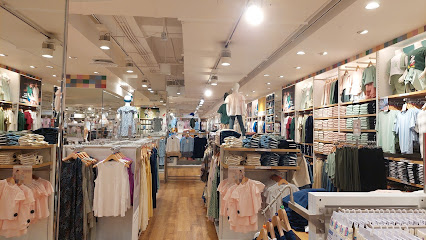
Tunjungan Plaza 4
Explore the ultimate shopping experience at Tunjungan Plaza 4, Surabaya's premier mall with diverse retail, dining, and entertainment options.
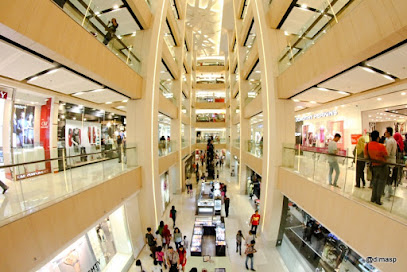
Heylocal - Tunjungan Plaza
Discover Tunjungan Plaza in Surabaya: A premier shopping destination featuring diverse women's clothing and a vibrant dining scene.
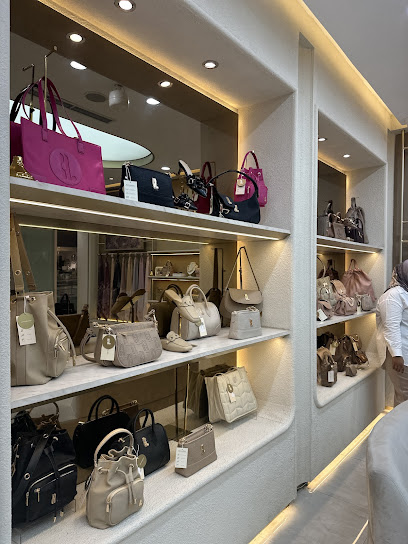
Thirty Three Brew Tunjungan
Discover the vibrant coffee culture at Thirty Three Brew Tunjungan, a must-visit café in Surabaya for coffee lovers and casual diners.
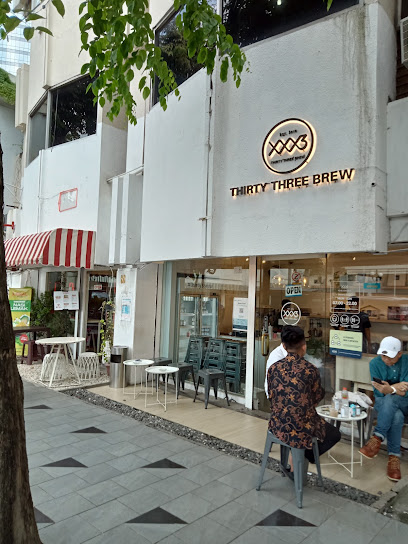
Persebaya Store - Outlet Tunjungan
Discover trendy Persebaya clothing and memorabilia at the Outlet Tunjungan in Surabaya, a hub for football fans and fashion lovers alike.
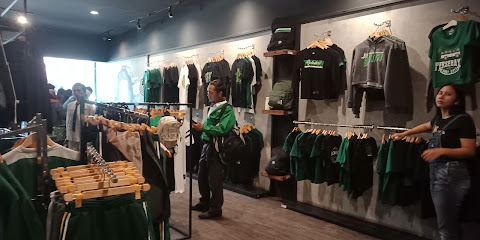
LITTLE TWO Jewelry & Gift Shop
Explore LITTLE TWO Jewelry & Gift Shop in Surabaya for unique handmade jewelry and gifts, capturing the essence of Indonesian craftsmanship.
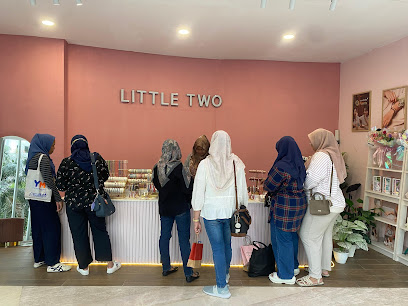
Urban Icon
Discover the elegance of time at Urban Icon, Surabaya's leading watch store, offering a remarkable selection of fashionable timepieces and accessories.
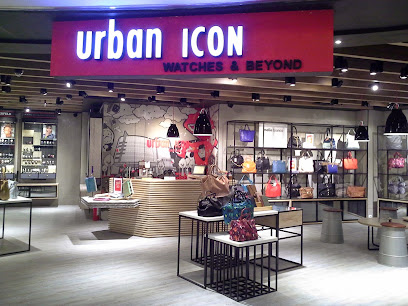
Ada Fashion
Explore Ada Fashion in Surabaya for trendy clothing and exquisite leather goods that blend style and affordability seamlessly.
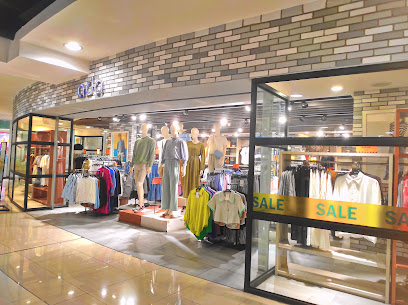
Toko Smile Giftshop Tunjungan Plaza
Explore Toko Smile Giftshop for unique souvenirs and local handicrafts that capture the essence of Surabaya's vibrant culture.
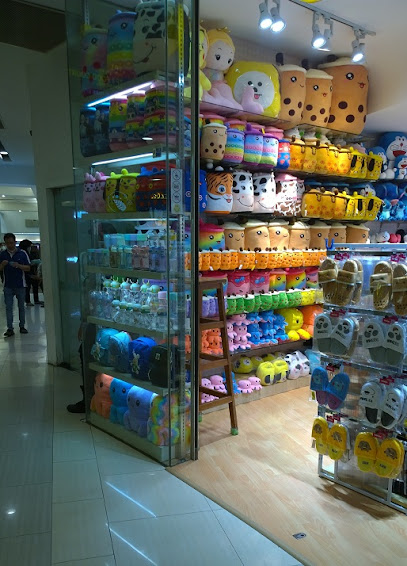
Essential bars & hidden hideouts
Our Bar
Discover the vibrant culinary and musical experience at Our Bar, the ultimate grill and live music destination in Surabaya.
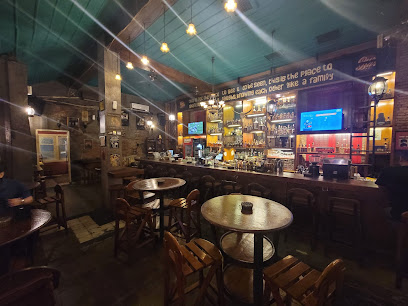
COLORS PUB & RESTAURANT
Discover the lively ambiance of COLORS PUB & RESTAURANT in Surabaya, where great food, drinks, and live music come together for an unforgettable night.
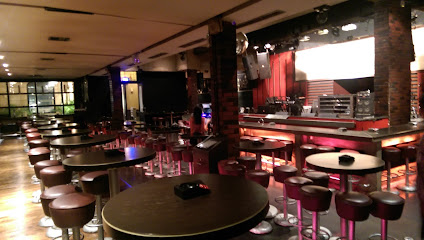
Inul Vizta
Experience the ultimate karaoke night at Inul Vizta, where great music and fun collide in the heart of Surabaya.
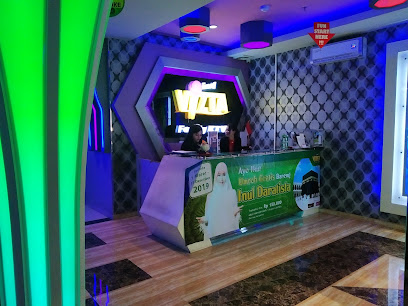
Hacienda Mexican Bar & Grill
Discover the vibrant flavors of Mexico at Hacienda Mexican Bar & Grill, a culinary gem in Surabaya, perfect for food lovers seeking an authentic dining experience.
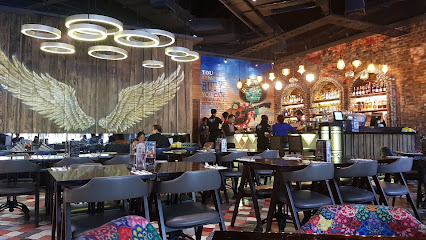
Top Ten Club Coyote Bar
Discover the energetic nightlife of Surabaya at Top Ten Club Coyote Bar, where lively music and exquisite cocktails create unforgettable memories.
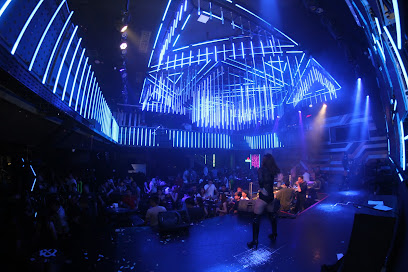
The Maj Pub & Dine
Discover exquisite dining and a vibrant atmosphere at The Maj Pub & Dine; a historical gem in the heart of Surabaya.
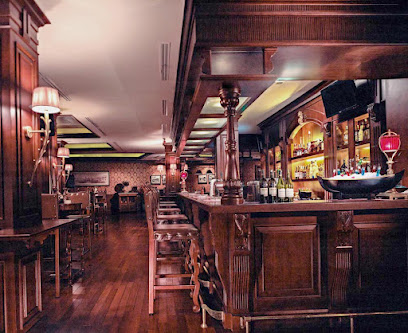
TRIBES Bar & Lounge
Discover the vibrant nightlife of Surabaya at TRIBES Bar & Lounge, where live music meets innovative cocktails in a stylish atmosphere.
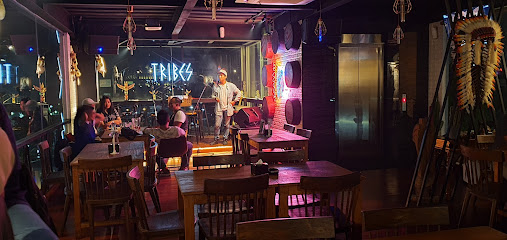
Kawi Lounge
Discover the elegance and charm of Kawi Lounge at Sheraton Surabaya, where exquisite drinks and live music create unforgettable moments.
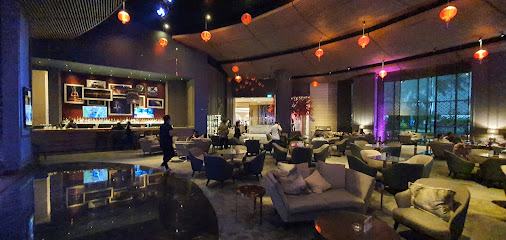
Fisixty 02
Discover Fisixty 02, Surabaya's creative bar with artistic cocktails and a vibrant atmosphere perfect for relaxation and socializing.
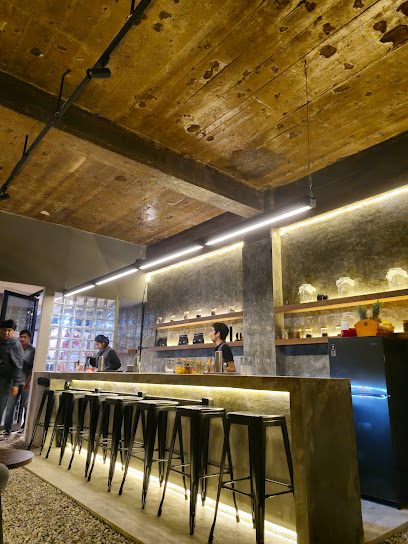
Cloud 22 Rooftop Bar
Discover Surabaya's vibrant nightlife at Cloud 22 Rooftop Bar, offering stunning views and exquisite cocktails in a stylish setting.
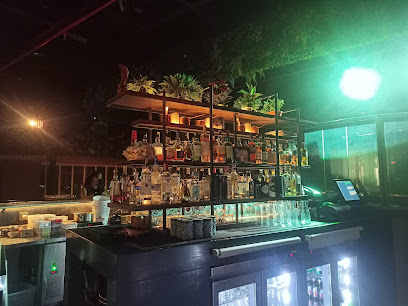
Local Phrases
-
- HelloHalo
[ha-lo] - GoodbyeSelamat tinggal
[se-la-mat ting-gal] - YesYa
[ya] - NoTidak
[ti-dak] - Please/You're welcomeSilakan
[si-la-kan] - Thank youTerima kasih
[te-ri-ma ka-sih] - Excuse me/SorryMaaf
[ma-af] - How are you?Apa kabar?
[a-pa ka-bar] - Fine. And you?Baik. Bagaimana denganmu?
[ba-ik. ba-gai-ma-na den-gan-mu] - Do you speak English?Apakah anda bisa berbicara bahasa Inggris?
[a-pa-kah an-da bi-sa ber-bi-ca-ra ba-ha-sa Ing-gris] - I don't understandSaya tidak mengerti
[sa-ya ti-dak men-ger-ti]
- HelloHalo
-
- I'd like to see the menu, pleaseSaya ingin melihat menu, silakan
[sa-ya in-gin me-li-hat me-nu, si-la-kan] - I don't eat meatSaya tidak makan daging
[sa-ya ti-dak ma-kan da-ging] - Cheers!Selamat minum!
[se-la-mat mi-num] - I would like to pay, pleaseSaya ingin membayar, silakan
[sa-ya in-gin mem-ba-yar, si-la-kan]
- I'd like to see the menu, pleaseSaya ingin melihat menu, silakan
-
- Help!Tolong!
[to-long] - Go away!Pergi!
[per-gi] - Call the Police!Panggil polisi!
[pang-gil po-li-si] - Call a doctor!Panggil dokter!
[pang-gil dok-ter] - I'm lostSaya tersesat
[sa-ya ter-se-sat] - I'm illSaya sakit
[sa-ya sa-kit]
- Help!Tolong!
-
- I'd like to buy...Saya ingin membeli...
[sa-ya in-gin mem-be-li...] - I'm just lookingSaya hanya melihat-lihat
[sa-ya han-ya me-li-hat-li-hat] - How much is it?Berapa harganya?
[be-ra-pa har-ga-nya] - That's too expensiveItu terlalu mahal
[i-tu ter-la-lu ma-hal] - Can you lower the price?Bisakah anda menurunkan harganya?
[bi-sa-kah an-da me-nu-run-kan har-ga-nya]
- I'd like to buy...Saya ingin membeli...
-
- What time is it?Jam berapa sekarang?
[jam be-ra-pa se-ka-rang] - It's one o'clockJam satu
[jam sa-tu] - Half past (10)Setengah (sepuluh)
[se-ten-gah (se-pu-luh)] - MorningPagi
[pa-gi] - AfternoonSore
[so-re] - EveningMalam
[ma-lam] - YesterdayKemarin
[ke-ma-rin] - TodayHari ini
[ha-ri i-ni] - TomorrowBesok
[be-sok] - 1Satu
[sa-tu] - 2Dua
[du-a] - 3Tiga
[ti-ga] - 4Empat
[em-pat] - 5Lima
[li-ma] - 6Enam
[e-nam] - 7Tujuh
[tu-juh] - 8Delapan
[de-la-pan] - 9Sembilan
[sem-bi-lan] - 10Sepuluh
[se-pu-luh]
- What time is it?Jam berapa sekarang?
-
- Where's a/the...?Di mana...
[di ma-na] - What's the address?Apa alamatnya?
[a-pa a-la-mat-nya] - Can you show me (on the map)?Bisakah anda menunjukkan kepada saya (di peta)?
[bi-sa-kah an-da me-nun-juk-kan ke-pa-da sa-ya (di pe-ta)] - When's the next (bus)?Kapan (bus) berikutnya?
[ka-pan (bus) be-ru-ti-knya] - A ticket (to ....)Tiket (ke ....)
[ti-ket (ke)]
- Where's a/the...?Di mana...
History of Tunjungan
-
Tunjungan, located in the heart of Surabaya, was significantly developed during the Dutch colonial period in the late 19th and early 20th centuries. As Surabaya emerged as a vital trading hub, Tunjungan became a prominent area characterized by colonial architecture, including the historic Tunjungan Plaza, which reflects the European influence of that era.
-
In the 1930s, Tunjungan played a pivotal role in the modernization of Surabaya. The establishment of businesses, hotels, and entertainment venues transformed the neighborhood into a central social and commercial hub. This period saw the construction of the iconic Hotel Majapahit, which became a symbol of luxury and elegance.
-
During World War II, Tunjungan, like much of Indonesia, experienced the harsh realities of Japanese occupation from 1942 to 1945. The occupation led to significant changes in the local economy and society, as Japanese authorities imposed strict controls and utilized local resources for the war effort. The impact of this period is still remembered by residents through various historical narratives.
-
Following Indonesia's declaration of independence in 1945, Tunjungan became a focal point for nationalist movements. It witnessed significant political activity and demonstrations as the local population sought to assert their rights and identity. The neighborhood's vibrant community spirit was instrumental in shaping the post-colonial narrative of Surabaya.
-
Today, Tunjungan is a blend of history and modernity, serving as a cultural hub that showcases Surabaya's rich heritage. The area hosts various cultural events, art exhibitions, and traditional markets, reflecting the diverse influences that have shaped the neighborhood over the decades. The blend of modern shopping complexes with historic sites illustrates the ongoing evolution of Tunjungan within the urban landscape of Surabaya.
Tunjungan Essentials
-
Tunjungan is centrally located in Surabaya, making it easily accessible from other neighborhoods. You can reach Tunjungan by taking a taxi or using ride-hailing apps like Gojek or Grab. If you're coming from Surabaya's Gubeng Train Station, it’s just a short 15-minute taxi ride. Public buses and angkots (minibuses) also frequently connect Tunjungan with various parts of the city, making it convenient for travelers.
-
Tunjungan is well-connected by public transport. The local bus system operates routes through the area, and angkots can be flagged down along major streets. For a unique experience, consider renting a bicycle to explore the neighborhood at a leisurely pace, as many attractions are within cycling distance. Taxis and ride-hailing services are also readily available, providing an easy option for getting around.
-
Tunjungan is generally safe for tourists, but it’s advisable to stay vigilant, especially in crowded areas. Petty crimes, such as pickpocketing, can occur in busy markets and shopping areas. Be cautious in poorly lit streets at night and avoid displaying valuables. While most of Tunjungan is safe, areas around the outskirts may have higher crime rates—exercise caution when wandering off the main streets.
-
In case of an emergency, dial the local emergency number 112 for police assistance. Hospitals and clinics are available in and around Tunjungan, with the RSUD Dr. Soetomo being one of the larger hospitals. It’s advisable to have travel insurance that covers medical emergencies. For minor health issues, local pharmacies can provide over-the-counter medications.
-
Fashion: Do dress modestly, particularly when visiting religious sites. Avoid wearing shorts or sleeveless tops in such places. Religion: Do respect local customs, and when visiting mosques, ensure to wear appropriate attire. Public Transport: Do offer your seat to elderly or disabled passengers, but don’t engage in loud conversations. Greetings: Do greet locals with a polite handshake; a smile goes a long way. Eating & Drinking: Do try street food, but don’t drink tap water; opt for bottled water instead.
-
To experience Tunjungan like a local, visit the historic Tunjungan Plaza for shopping and dining. Explore the nearby traditional markets for authentic Indonesian snacks and handicrafts. Engage with local vendors, as they often share stories about the culture and history of Surabaya. Don’t miss the opportunity to try local dishes such as rawon (beef soup) and rujak (fruit salad) at street stalls. Take time to enjoy the vibrant street art that adorns many buildings in the area.
Nearby Cities to Tunjungan
-
Things To Do in Semarang
-
Things To Do in Yogyakarta
-
Things To Do in Bali
-
Things To Do in Bandung
-
Things To Do in Jakarta
-
Things To Do in Makassar
-
Things To Do in Balikpapan
-
Things To Do in Settlement
-
Things To Do in Poon Saan
-
Things To Do in Flying Fish Cove
-
Things To Do in Drumsite
-
Things To Do in Greta Beach
-
Things To Do in Kuching
-
Things To Do in Miri
-
Things To Do in Kuala Belait









